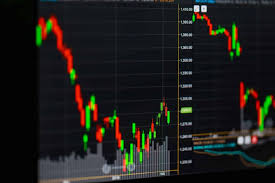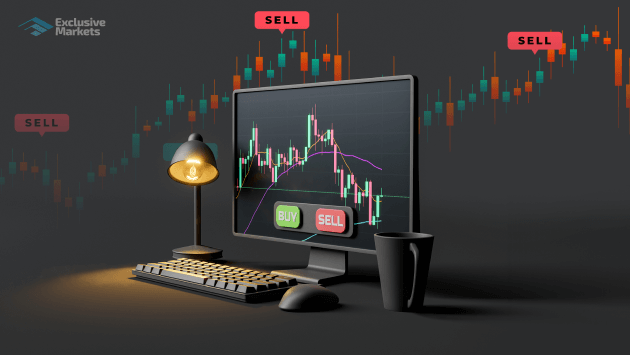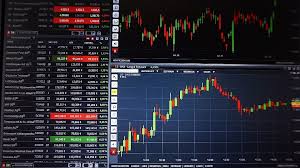
Mastering Forex Trading: Your Comprehensive Course Guide
Forex trading, often referred to as FX trading, is a dynamic and fast-paced market that offers a myriad of opportunities for traders. Understanding the nuances of this market is crucial for achieving success. This article aims to illuminate the pathway to mastering forex trading by delving into essential aspects covered in a well-structured forex trading course Online Trading Brokers course. Whether you are a novice or an experienced trader, this guide can help enhance your skills and knowledge.
Understanding Forex Basics
The forex market is the largest financial market in the world, with a daily trading volume exceeding $6 trillion. Unlike traditional stock markets, which operate on a set schedule, the forex market is open 24 hours a day, five days a week. This flexibility offers traders the ability to engage in trading across different time zones. To start trading, it’s essential to understand key terminologies such as currency pairs, pip, margin, leverage, and stop-loss orders. A well-structured course will cover these basics in detail, ensuring that you have a solid foundation.
Market Analysis Techniques
Successful forex trading hinges on the trader's ability to analyze market trends effectively. There are three primary analysis methods: fundamental analysis, technical analysis, and sentiment analysis.
Fundamental Analysis
This approach involves evaluating economic indicators, news reports, and geopolitical events that can impact currency values. A comprehensive forex trading course will guide you in interpreting data such as interest rates, employment figures, and GDP growth, helping you make informed trading decisions.
Technical Analysis

Technical analysis focuses on price actions and historical data. By utilizing charts and various indicators like moving averages or the Relative Strength Index (RSI), traders can identify patterns that suggest potential future movements. A good course will teach you how to read charts effectively and apply different technical indicators to enhance your trading strategy.
Sentiment Analysis
Sentiment analysis gauges the mood of the market. Understanding whether traders are feeling bullish (expecting prices to rise) or bearish (expecting prices to fall) can provide insights into market movements. Learning how to incorporate sentiment analysis into your trading strategy is a valuable skill covered in many forex courses.
Developing Your Trading Strategy
Once you have grasped the basics and analysis techniques, the next step is developing a trading strategy tailored to your trading style and risk tolerance. A comprehensive forex course will typically introduce various strategies, including day trading, swing trading, and scalping. It’s important to practice these strategies in a demo account before trading with real money.
Day Trading
Day trading involves making trades within a single day, aiming to capitalize on short-term market movements. This strategy requires constant market monitoring and quick decision-making, making it best suited for those who can dedicate substantial time to trading.
Swing Trading
Swing trading allows traders to hold positions for several days to capitalize on expected upward or downward market shifts. This approach is ideal for individuals who cannot dedicate their entire day to trading but still want to engage in the forex market actively.
Scalping
Scalping is a high-frequency trading strategy focused on making small profits on minor price changes. While potentially lucrative, this strategy requires a solid understanding of market movements and fast execution tools.

Risk Management
One of the most critical aspects of forex trading is risk management. A good course will emphasize the importance of managing your risks to protect your trading capital. This includes understanding the concept of leverage and margin, setting proper stop-loss orders, and never risking more than you can afford to lose.
The Psychological Aspect of Trading
The psychological edge in trading cannot be overstated. Many traders experience intense emotions such as fear and greed, which can lead to poor decision-making. A quality forex trading course will often cover the psychological aspects of trading, helping you develop a disciplined approach that minimizes emotional responses and promotes rational decision-making.
Finding the Right Broker
Choosing the right forex broker is foundational to successfully trading in the forex market. A well-established broker provides the necessary tools, trading platforms, and customer support for effective trading. Many courses will guide you in evaluating brokers based on factors such as spreads, deposits, withdrawal options, and regulatory compliance.
Continuous Learning
The forex market is continuously evolving, and successful traders are those who remain informed and adaptive. Engaging in continuous learning through webinars, advanced courses, and trading communities can significantly enhance your trading skills over time. Many trading courses also offer ongoing support and resources to help traders stay updated on market trends and strategies.
Conclusion
Embarking on your forex trading journey can be both exciting and challenging. A well-structured forex trading course is invaluable, providing the knowledge and skills necessary to navigate this complex market successfully. By focusing on the essentials—from understanding market dynamics to developing effective strategies and managing risk—you can position yourself for long-term success in forex trading. Remember, the journey is ongoing, and continuous education is key to remaining competitive.